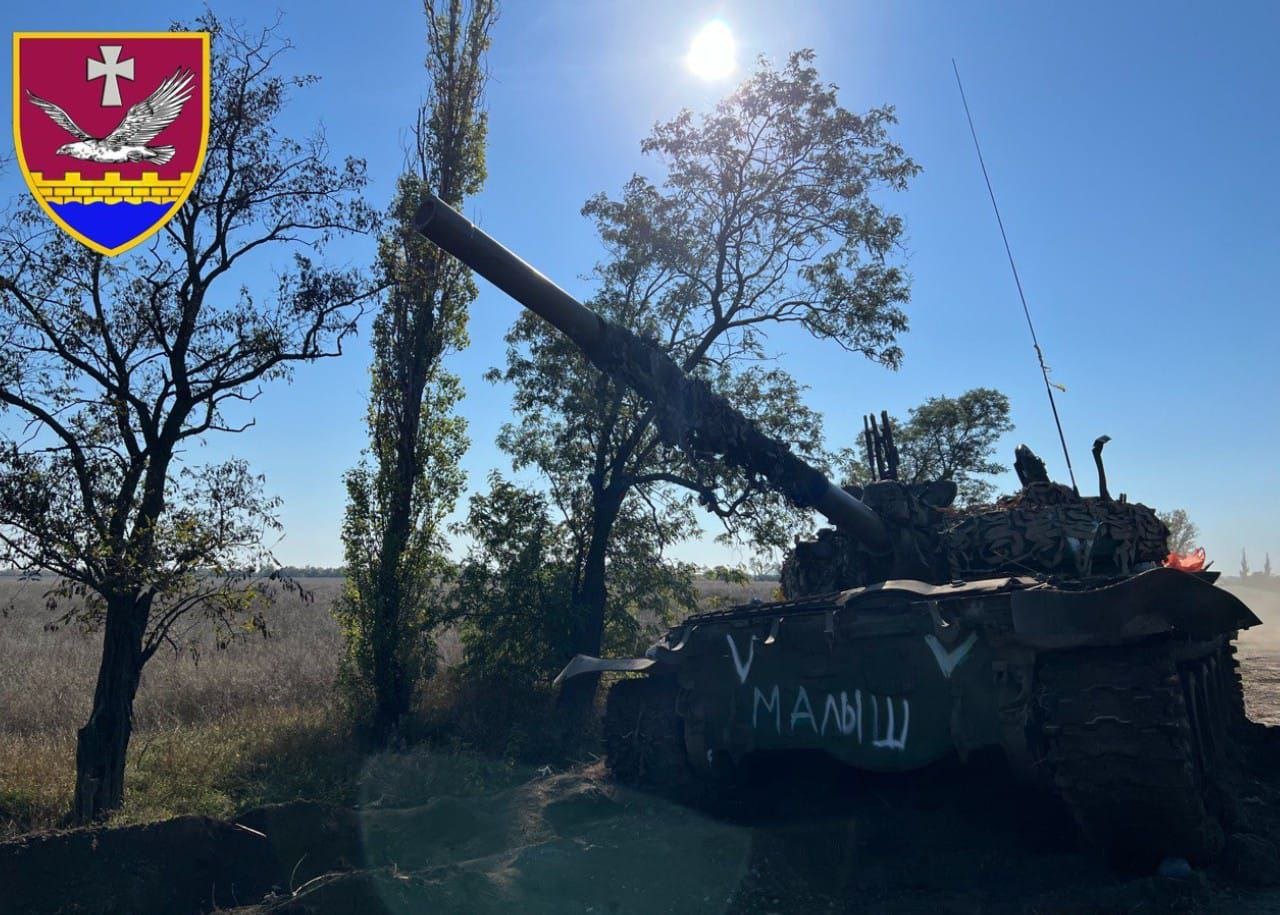In the ongoing Ukraine war, the Russian Army has fielded a modified version of the T-62 tank, which entered service during the early stages of the Cold War.
On February 25, the ‘Ukraine Weapons Tracker’ group published a photo on Twitter of the T-62M obr. 2022′, in what appeared to be the first sighting of the tank in the ongoing conflict. The T-62 is one of the oldest Soviet-era tanks in operation with the Russian and Ukrainian armies.
The T-62 entered service with the Soviet Army more than sixty years ago, making it a genuinely vintage vehicle that has reportedly been modified over the years to prevent the tank from becoming obsolete.
The tank shown in the recent photographs appears equipped with a thermal sight that dates back to the cold war era. According to the tweet and subsequent observations, the modified tank is a new 1PN96MT-02 thermal sight replacing the old optics mounted on the previous versions of the tanks.
However, even this modified tank does not have explosive Reactive Armor (ERA), which protects the tank against explosive projectiles that are very common in combat.

The development comes when Russians have incurred massive tank and infantry vehicle losses over the previous year.
According to the latest estimates published by Ukraine’s Ministry of Defense, Moscow has lost over 3381 tanks in the ensuing combat. The numbers, however, cannot be independently verified.
In the 1970s and 1980s, a 40-ton, four-person T-62 sported an active thermal sight from the TKN-2 family, as well as either a TSh-2B-41 or a TShSM-41U gunner’s sight that allowed the gunner to fire 115mm smoothbore cannon approximately a mile during the day and perhaps half a mile at night.
However, these weren’t sufficient, and modern sighting systems were needed. This was when the 1PN96MT-02 was introduced, as they allowed the gunner to launch an attack as far as two miles away, a significant improvement from the previous systems.
However, with technological advancement, Sosna-U digital sighting systems were introduced that could be seen on the newer T-90 tanks in the Russian arsenal and some other upgraded T-80s and T-72s. The Sosna-U has a range that far exceeds that of the archaic 1PN96MT-02.
After the photos surfaced online, military experts asserted that the new ‘T-62M obr. 2022’ tanks fielded by Russians could be an exercise to compensate for massive combat losses as they don’t serve a bigger purpose.

Speaking to EurAsian Times, (Retd) Lt Col J.S Sodhi said, “The Russian decision to mount its armored tanks with 1PN96MT-02 thermal gunner sights will not improve the combat potential of the Russian Army as these optical sights are outdated.
They will be no match to the technologically advanced weaponry of the Ukrainian Army, which the USA and NATO have been regularly supplying to them.
Russia will commit hara-kiri if it sends its tanks fitted with 1PN96MT-02 optical sights in the Ukraine War.”
The T-62 is a vintage tank fielded by the Russian Army since the initial months of the ongoing conflict. The Ukrainians have obliterated several old tanks armed with abundant anti-tank-guided missiles.
Russia’s ‘War Time’ T-62 Tanks
The first T-62s entered Soviet service in 1961. Russia undoubtedly inherited several hundreds of T-62s from the Soviet Union, most of which are believed to be T-62M variants.
On its part, the Soviet Union had thousands of these tanks undergo a thorough upgrading program in the 1980s that included the installation of more potent engines, improved fire control systems, and additional defenses. Several different sub-variants emerged, including ones with Kontakt-1 explosive reactive armor (ERA) packages and first-generation Drozd active protection systems were some of the new defensive features.
The T-62M obr 2022 does not have ERA and is virtually more exposed than other tanks.
The T-62s that Russian forces have been employing in Ukraine seem to combine T-62MV models with Kontakt-1 ERA and T-62M variants, which the added passive appliqué armor can distinguish on their turrets.
Some of these tanks have received a cage-like armor modification on top of the turret, offering marginally more defense against anti-armor weaponry and anti-tank missiles.
In October last year, media reports indicated that Russia was undertaking a massive modernization drive under which the military will receive 800 reconditioned and perhaps upgraded T-62 tanks over the next three years to make up for the significant losses it has already incurred during its current full-scale invasion of Ukraine.

Many of these tanks have also been captured by the Ukrainian troops, refurbished, and fielded in combat in large numbers.
Against that backdrop, deploying a T-62 tank with an old sighting system considered useless in modern combat and without ERA has come under scrutiny. It has primarily led to an understanding that Russia has been unable to produce the Sosna-U sighting system with enthusiasm as it depends on a French-made Thales thermal imager, allegedly forcing it to settle for the 1PN96MT-02.
However, some military observers believe these refurbished tanks might be used as tracked mobile artillery. Military expert and an avid follower of the Ukraine war, (Retd) Squadron Leader Vijainder K. Thakur said, “The use of modern T-90 tanks as mobile artillery is a waste. Fielding upgraded T-62M tanks as mobile artillery makes more sense. The T-62M will not be pitted against modern western tanks like Leopard-2.”
Pulling off older tanks from storage and fielding them after upgrading has been believed to be an attempt to compensate for the tanks lost in combat and keep the offensive up and about
- Contact the author at sakshi.tiwari9555 (at) gmail.com
- Follow EurAsian Times on Google News




